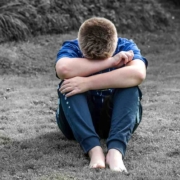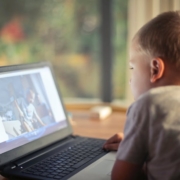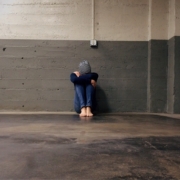Table of Contents
Overview
What is bullying?
Who is at risk of being bullied?
Who is at risk of becoming a bully?
What are the effects of bullying?
How can I stop a bully?
Can a lawyer help if your child is being bullied?
Overview
An unfortunate condition in our society is that bullying happens. It happens every day, and the target of the bully are often people who would have never guessed they’d be bullied. The bullies are everywhere; they are children and adults, men, and women. It’s a pervasive aspect of the world in which we live.
Bullying takes many forms, the types of bullying range from physical bullying to mental abuse to online bullying. Often it’s challenging to pinpoint bullying behavior. Sometimes it is visible, and other times it’s much more subtle.
Bullying happens in many places, including school, church, sport teams, on the internet, the workplace, and in public. Generally, wherever people gather, there’s an opportunity for someone to be bullied.
But what are the effects of bullying? Can it be stopped? What rights does someone who is being bullied have? And, can a lawyer help if you or your child is being bullied?
What is bullying?
There are quite a few definitions of the term. Still, the generally accepted meaning of bullying was created in 2014 by the Department of Health, Center for Disease Control and Department of Education. This definition is federally uniform and was drafted for research and surveillance. In the description, it is cited that bullying includes unwanted aggressive behavior, observed or perceived imbalance of power, and repetition of the behavior or high likelihood of recurrence.
In our common and current language, the definition describes two “modes” of bullying, direct and indirect bullying.
Direct implies that the acts of a bully occur in the presence of a targeted individual. This could be physical and in-person or directly targeted through online channels.
Indirect suggests that the bully is not directly communicating with the targeted individual. A clear example of this is when a bully spreads rumors about a targeted person or child.
Along with the two modes in the definition, there are also four types of bullying, these are categorized as verbal, physical, relational (when an effort is made to cause harm to the relationships or reputation of an individual), and damage to property.
An addition method of aggressive intimidation is called cyberbullying; this occurs when the bully attempts to cause physical, mental, or emotional harm to someone through the use of electronic methods. These attempts of aggression are usually either verbal, threatening through instant messenger, for example, or relational, like spreading rumors through social media. Cyberbullying can also cause damage to property if the outcome of the bullying modifies, deletes, or destroys a targeted individual’s private data that is stored in some electronic method. For example, if someone were to gain access to online image storage and deface or delete the target’s pictures, this would be considered damage to property.
With so many variations and interpretations of the definition, it’s easy to see why many people might be unsure of what is happening to them, or their child is considered bullying. The only sure way to find out would be to speak to someone knowledgeable in the legal implications of the threatening or intimidating acts.
Who is at risk of being bullied?
While people of all ages are bullied, we often hear about children who are bullied in school, sports, church, online, or in some social environment.
When it comes to children and their risk of being bullied, there are some characteristics that we find to be common. Now, as you read this, understand that just because a child might possess one or more of these characteristics, it does not mean that they will be bullied or that they have been bullied. It merely means that there is an increased likelihood that they could be the target of a bully.
Further, many of these characteristics can apply to adults who are maliciously targeted by a bully.
When cases of reported bullying are examined, some of the traits associated with the targets of bullies are:
- Someone who is considered unique or different from their typical peer group. This could be someone who thinks or acts differently or someone who displays physical differences such as being overweight or underweight, wears clothes that are considered “uncool,” wears glasses, or is a standout in some way, like the new kid at school.
- Children and adults who are considered weak or diminutive in some way. These are usually kids who are seen as unable to defend themselves.
- Children with low self-esteem, who are depressed, have mental health issues or display some form of anxiety.
- Children who do not have many or any friends. These are the “loners” in the school population.
- Often children who do not get along with others, have poor social skills, or are seen as irritating are the target of bullying.
While these guidelines suggest who is likely to be a target of a bully, it’s worth noting that there are cases where the subject to aggressive behavior has none of the above characteristics. They might be a popular kid in school who has a lot of friends and high self-esteem, and they are still the target of a bully.
Ultimately, we need guidelines to study a topic, and bullying is no different. But like many different areas of study, so much exists in the gray area that we need to be conscious and aware of the signs of bullying. We might encounter a targeted child who no one thought would be bullied. It’s essential to recognize all victims of bullying.
Now, there are two sides to the concept of bullying. We’ve covered those who are at risk of being bullied. To get a complete picture, we need to consider the risk factors that contribute to someone becoming a bully? Just who among us is more likely to bully others?
Who is at risk of becoming a bully?
Under no circumstances is it right or justified to be a bully. It is crucial, though, for those of us who work hard to stop the bullying to understand what traits are more likely to contribute to someone becoming a bully. By knowing, we have a decided advantage when we work to prevent bullying.
We will also mention here that while we are talking about children who could be bullies, these characteristics could also apply to adults.
We can generally classify children into two distinct groups when we examine the likelihood of them becoming a bully.
The first group is those who are isolated from their peers. Like the bullied, these children are anxious, depressed, have low self-esteem, are less involved in school and social activities, are subject to peer pressure, and cannot quickly identify or empathize with the feelings and emotions of others.
The second group of children is nearly the opposite. They are fashionable and have a large group of friends. They seem to span multiple groups of peers from the more athletic to the academic to the more socially connected. These children are increasingly concerned about their social stance or popularity and like it when they are in control of others, even those in their peer groups.
Some of the factors that indicate a child is more likely to be a bully include:
- They are aggressive among their peers and toward others, including those they might not know very well or others who are outside of their peer group.
- These children are easily frustrated and have a difficult time coping when things do now go exactly their way.
- They have domestic issues or problems at home, including limited or no parental involvement.
- They openly think negatively of others and express those feelings either through thoughts, verbalizations, or actions.
- These children view violence as a positive tactic in dealing with situations.
- They have difficulty following rules or often believe that rules do not apply to them.
It truly is worth repeating that just because a child displays one or more of these behaviors does not mean that they are a bully. No one would ever want to classify a child as a bully when they are, in fact, not one.
What are the effects of bullying?
Sadly, the effects of bullying extend well beyond the individual who is targeted with aggressive behavior. Bullying affects three groups of children and adults. It affects the bullied or the target individual, it affects the bully themselves, and it affects the bystanders, including family, friends, and acquaintances who might have witnessed the abusive acts.
The child being bullied has an increased risk of depression, anxiety, anti-social behavior, and loneliness. They are more likely to lose interest in activities outside of the home and might isolate themselves from their family and friends. In some cases, thoughts or indicators of suicide might exist.
Children being bullied might also experience physical health problems as a result of the stress of the bullying. Further, they may suffer from decreased academic performance.
The child who is bullying also suffers. These children are more likely to abuse alcohol and drugs, engage in promiscuous sexual activity, drop out of school, get in trouble with the law, and isolate themselves from their peers.
Moreover, the bully will often carry their behaviors into adulthood and become bullies in the workplace and at home. They are more likely to engage in abusive relationships with a significant other and their children.
The family, friends, and bystanders who witness the direct or indirect acts or see the after-effects are impacted as well. Children who witness bullying might experience feelings of guilt or regret if they did nothing to stop the aggressive actions. These children are more likely to miss school because they are looking to avoid being bullied or witnessing the bully’s acts again.
How can I stop a bully?
To stop the behavior of bullying, everyone involved needs to take an active role. This includes parents or custodial adults, teachers, school administrators, executives in the workplace, bystanders, and the bullied.
As is the case with so many issues, education and awareness are critical components of preventing and stopping bullying. Everyone involved should be aware of the indicators that someone is at risk of being targeted by a bully or at risk of becoming a bully. Through education, early intervention can happen, and many instances of bullying can be prevented.
Another tactic that can be very effective in preventing bullying is opening the lines of communication between parents, guardians, teachers, school administrators, and children. When people feel comfortable talking about a complicated topic, it eases the difficulty when it is most important to do so. By creating clear channels of accessible communication, instances of bullying that might typically go unreported can be handled quickly and effectively.
Despite these effective tactics, there may still be times when these methods do not stop bullying. It’s during these times that involving a legal professional who focuses on bullying should be a consideration.
Can a lawyer help if your child is being bullied?
Wondering if you can sue a private school for bullying? Give our article a read through, and if you have specific questions you need answered, book a consultation with one of our Personal Injury Lawyers.
When traditional tactics of reporting bullying and communications with school administration and teachers are ineffective in stopping a bully, speaking with an attorney who focuses on bullying is, undoubtedly, an option.
Attorneys who focus on cases that involve bullying are trained to help the bullied children and their families pursue legal action against the schools, churches, organizations, or other parents who are not making attempts to prevent the aggressive acts from happening.
If you believe your child’s school, church, or organization is not actively working to prevent another child from bullying; please contact us to learn what legal options you have.
In today’s age, people of all ages are very active online- whether it be connecting with family and friends, sharing what they are doing and where they are doing it, sharing photos and videos from their mobile device, or building online profiles which describe who they are. While the internet has made it easy to share this information, doing so comes with certain risks, especially for kids. Here we discuss those risks and how can you discuss them with your child(ren).
Talking To Your Kids About Staying Safe Online
The best way to protect your kids online is to talk to them about it. As soon as your child starts using a phone, mobile device, or computer, you should begin the conversation of online safety. As parents, you should initiate the conversation. You can use everyday opportunities to initiate the conversation. For example, news stories about cyberbullying or texting while driving can spark a conversation about their online experiences and your expectations.
When communicating your expectations, be specific about what’s off-limits, and what you consider to be unacceptable behavior. During these conversations, it is important to be patient and supportive. Resist the urge to rush through having the conversation; most children need to hear things more than once before it sinks in so you should have a short conversation about this more than once. Work to keep the lines of communication open. Listening and taking their feelings into account will help keep the conversations productive.
Parents or guardians should consider the unique ways to speak to kids and teens
There is no question that as children get older you have to communicate with them differently. Learning how to talk about online safety through the years is important to make an effective impact on your child’s online behavior and safety. For young kids, supervision and parental controls are the best ways to monitor their online activity. Some features available are filtering and blocking, browsers for kids, and disabling in-app purchases from your device.
As young kids get older and turn into tweens, they like to feel independent. They also may be at the age where they are tech-savvy enough to get around the parental controls that once worked. An alternative action you can take at this stage is setting time limits on use. When children turn into teens, they begin to form their own opinions and take on the value of their peers. The most valuable thing you can do is talk about credibility, manners, and expectations.
Addressing kids and social networking
Kids share a lot online from pictures, videos, whereabouts, thoughts, and plans with their friends, family, and sometimes strangers too. Some downfalls with online socializing are oversharing too much information, or posting pictures, videos, or words that can damage a reputation or hurt someone’s feelings. So, what can you do to keep your kids safe? Remind your kids that online actions have consequences. The things they share could be seen in the future by colleges and other people who can influence their future.
Cyberbullying is bullying or harassment that happens online. Help prevent cyberbullying by talking to your kids about bullying. Let them know that they can’t hide behind the words they type or images they post or send to others. Recognize the signs of cyberbullying – it often is in the form of mean-spirited comments, and if you do see this, make sure they know to say something.
Using Mobile Devices
It is each parent’s responsibility to decide when is the right age for their child(ren) to have a phone or mobile device. Whenever that time may come, it’s important to know the various ways that you can keep them safest with it. Most wireless companies have settings that allow parents to turn off features like web access, texting, or downloading/in-app purchases. Many smartphones today also have GPS location on them – this technology can be beneficial for you as a parent, but it also allows for their friends and possibly strangers to know their whereabouts.
If your child’s mobile device is a smartphone, there are hundreds of apps that are available to them. You should know that there is a chance that apps might collect and share personal information, let your kids spend real money (even if the app is free), and link to social media, all without you being aware. To avoid these possible negative effects of apps, you should read the description, content rating, and user reviews, and check what information the app collects before downloading. Most apps also allow you to restrict content, set passwords, and turn off Wi-Fi so it can’t connect to the internet.
When it comes to texting, encourage manners. Texting shorthand can lead to misunderstandings, so it’s important kids think about how someone else may interpret the message. You should also remind your kids to ignore texts from people they do not know and when it comes to sexting, do not do it! Aside from risking their reputation and friendships, they could be breaking the law if they create, forward, or even save this kind of message.
Making Computer and Internet Security A Habit
The security of your computer affects your user experience, and also that of your kids. Certain types of software can install viruses on your computer, send unwanted ads, and monitor your computer use. To avoid these problems, use security software and keep it updated, keep your operating system, web browser, and apps up to date, and allow the use of multi-factor authentication.
You should let your children also know that it is important to create strong passwords and keep them private, not to provide personal of financial information unless the website is secure, and watch out for “free” stuff. An important tip to teach your kids: If the URL does not start with “https,” don’t enter any secure information – the “s” means that your information is encrypted.
Nobody is ignorant of the fact that the internet and social media is dominating this generation. Virtually every age group spends hours online each day whether it is for work or scrolling Facebook or Instagram. Unfortunately, there are many people who use the internet and social media to bully others. Far too often these bullies are children trying to be “cool” by bullying another student or child. This is referred to sometimes as “cyberbullying.”
Bullying comes in many forms
Over the years I have received countless inquires from parents whose child has been bullied at school. There is never a specific formula, and the results of the being bullied are always different. Sometimes the acts are verbal, sometimes it is cyberbullying, sometimes it is physical, and in a few cases, the bullying has involved allegations of sexual assault.
Regardless of the type, bullying is not right. Nobody deserves to be bullied. Nobody. It does not matter if you act differently or if others view you as an outsider – nobody deserves to get bullied ever. Florida passed an anti-bullying law in 2008 as a measure to prevent bullying. See Fla. Stat. Chap. 1006 et. seq. This law requires schools to establish anti-bullying programs and policies aimed at reducing bullying in schools.
The effects of being bullied are more than physical
Any parent who has seen their kid get bullied can see the physical and emotional strain that bullying puts a child through. Further, if there are threats or a physical touching (including hitting, shoving, or sexual assaults), then there is a potential criminal aspect to the bullying. Unfortunately many times it is difficult for law enforcement to prove that a crime happened, so they pass on pressing charges against the bully.
However, just because there are no criminal charges brought against a bully, there is a possibility that the victim can bring a civil claim against the bully. My office has handled numerous cases of bullying and prides itself in giving a victim a voice.
The liability of bullying extends beyond the bully
Many times bullying claims involve multiple parties who can be held liable for the bully’s actions. This includes the bully, his or her parents, a school, or any other individual or entity who permits bullying to occur (including a daycare, afterschool care, babysitter, etc.). There may also be multiple causes of action that can be brought such as negligence, negligent misrepresentation, and negligent supervision. Many victims and their families are unaware that schools and daycares have a responsibility to supervise children and to take specific measures to safeguard the students that they watch. When a school or daycare fails to protect a victim, they can be held liable for the child’s injuries.
A bullying case can become very complex quickly. Often there may be a claim against a governmental entity that should be brought in connection with a claim against the individual bully. Florida’s sovereign immunity statute (Fla. Stat. 768.28) applies in cases brought against a public entity (such as a school) which could limit the liability of the school. The statute also imposes certain notice requirements that a victim must provide to the state before bringing the claim.
Standing up for your rights against being bullied with the support of an attorney
Having an experienced attorney on your child’s side after they have been bullied can level the playing field. Although no amount of compensation can serve to fix the wounds incurred by bullying, a successful claim can help to pay for future therapy or other treatment to help the victim deal with both the emotional and physical scars from bullying. Further, and perhaps most importantly, bringing a claim against a bully will serve to make a statement against other bullies and, hopefully, cause others to rethink their actions. The ability for a victim to bring a civil claim against a bully is one tool that we can use in the fight to end bullying. Further, many times bullying claims can be brought confidentially so that the general public does not know the identity of the victim.
What to do if you or someone you know has been bullied
If you, a loved one, or someone you know has been bullied, I would invite them to contact our office for a free and confidential conference with an attorney who can assist with their claim. It is never too soon to call as many times time is of the essence in these cases. Further, there is no obligation to speak with an attorney.
Law Offices Near You
Altamonte Springs
940 Centre Circle
Suite 3002
Altamonte Springs, FL 32714
Phone: (407) 982-7252
Lake Nona
1380 S. Narcoosee Rd.
St. Cloud, FL 34771
Phone: (407) 512-4394
Waterford Lakes
12301 Lake Underhill Road
Suite #213
Orlando, FL 32828
Phone: (407) 512-4394
Winter Garden
12200 West Colonial Drive
Suite #100
Winter Garden, FL 34787
Phone: (407) 955-4848
Law Practice Areas
Bankruptcy Law
Business Law
Elder Law
Family Law
Guardianships
HOA & COA Representation
Immigration Law
Litigation
Misdemeanor Criminal and Criminal Traffic
Personal Injury Law
Probate Law
Real Estate Law
Social Security Disability
Special Needs and Education
IEPs and School Law
Trusts, Wills and Estate Planning
Veterans Law










